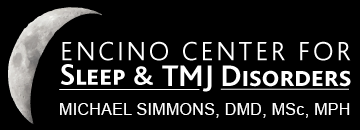How Much Sleep Do You Really Need?
Stop Guessing, Start Assessing
We’ve all heard the ubiquitous advice to get eight hours of sleep per night. But is this golden number optimal for everyone? Sleep requirements vary based on age, lifestyle, and health status. While we may envy people who thrive on just four to five hours of shut-eye, that little sleep leaves most of us feeling sluggish.
On the flip side, oversleeping can also leave you feeling groggy. Understanding the sleep duration best for you allows you to gain the full benefits of restorative rest. You may be surprised to know how much sleep you truly need.
Our Daily Sleep Requirements
Many operate on too little sleep, thinking we can get by on power naps and caffeine. However, quality nighttime sleep has distinct benefits that cannot be achieved through sporadic daytime snoozing. Adults require seven to nine consecutive hours per night to wake up feeling refreshed. Getting this amount allows your body to complete full sleep cycles, consolidating memories, regulating appetite, and more.
Sleep requirements change across different life stages. Here is an optimal sleep duration breakdown:
Children (6-13 years): 9-11 hours
Teens (14-17 years): 8-10 hours
Adults (18-64 years): 7-9 hours
Elderly (65+ years): 7-8 hours
Your sleep needs can also vary if you have a particularly active lifestyle. For example, pro athletes may require upwards of 10 hours nightly. If you don’t exercise regularly, are overweight, or have underlying conditions, your sleep needs may shift downwards. Pay attention to your energy levels – if you rely on an alarm clock to wake up or require long naps, chances are you need some more shut-eye.
Effects of Too Little Sleep
Getting optimal sleep provides myriad health benefits, while too little sleep can negatively impact both physical and mental health:
Physical
Better sleep strengthens immunity, reduces inflammation, lowers the risk of diabetes and heart disease, and aids weight control. Poor sleep does the opposite, elevating disease risk.
Mental
Quality sleep consolidates learning and memories, helps creative problem-solving, and regulates emotional reactivity. Skimping on sleep dulls mental performance while increasing the risk of anxiety and depression.
As you can see, those 8 hours may be a decent benchmark, but don’t assume it applies perfectly to you. Take stock of how you feel after different amounts of sleep. Are you productive, mentally sharp, and emotionally balanced on your current schedule? If not, take steps like limiting blue light exposure, avoiding caffeine late in the day, and establishing a soothing pre-bed routine. Optimizing your sleep just might optimize your waking life.

Improve Your Sleep Hygiene
Now that you know how much sleep you should aim for, it’s time to ensure you’re setting yourself up for high-quality slumber. Follow these sleep hygiene best practices:
Stick to a schedule – Try to go to bed and wake up at consistent times, even on weekends. This regulates your circadian rhythm for better nighttime rest.
Limit blue light exposure – Avoid screens for one to two hours before bedtime, as the blue light emitted can prevent drowsiness.
Develop a calming routine – Activities like light stretches, meditation, or reading before bed signal your body that it’s time for shuteye.
Evaluate your environment – Ensure your sleep space is cool, dark, and quiet. Consider blackout curtains, a white noise machine, or a weighted blanket.
- Pay attention to what you consume – Limit caffeine past the early afternoon. Avoid heavy meals and alcohol before bed, which can negatively impact sleep quality.
Incorporating positive sleep hygiene habits makes it easier to drift off into a peaceful slumber and reach optimal sleep duration. Setting yourself up for success can lead to benefits in energy, mood, and health.
Wake Up Refreshed! Schedule Your Sleep Assessment
Are you struggling with sleep issues or think you may have sleep apnea? The Encino Center for Sleep & TMJ Disorders has the answers and treatments you need. Call (818) 300-0070 or visit their website to schedule your initial consultation. The compassionate team of sleep medicine doctors and researchers at Encino Center can conduct comprehensive assessments, provide accurate diagnoses, and work with you to implement tailored treatment plans that finally alleviate your sleep struggles.
Call today to make an appointment with knowledgeable professionals dedicated to resolving your sleep health challenges and restoring the restorative slumber you need to thrive in life. With evidence-based care from trusted experts, the Encino Center for Sleep & TMJ Disorders is your one-stop destination for a vibrant future.
